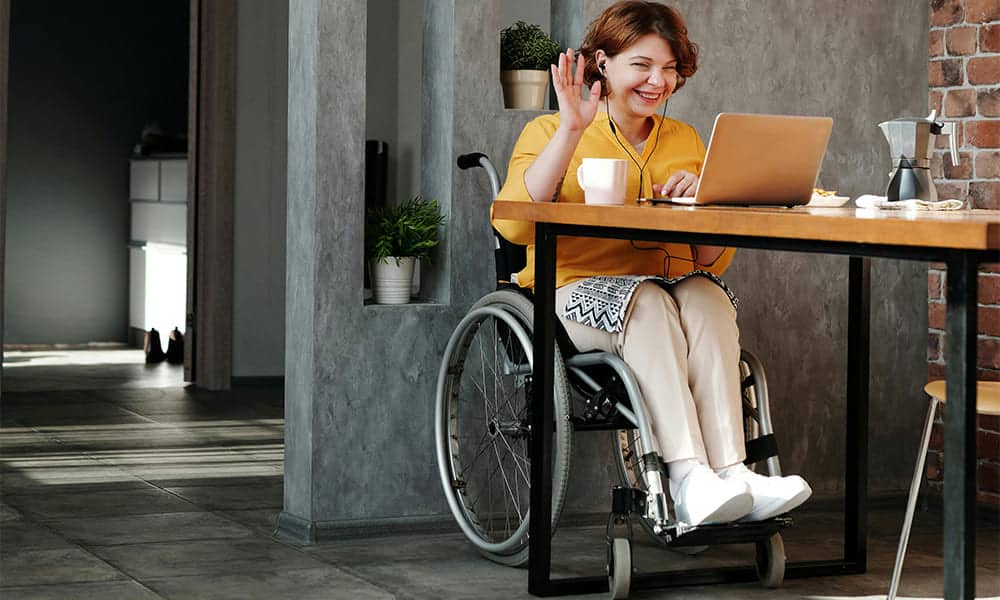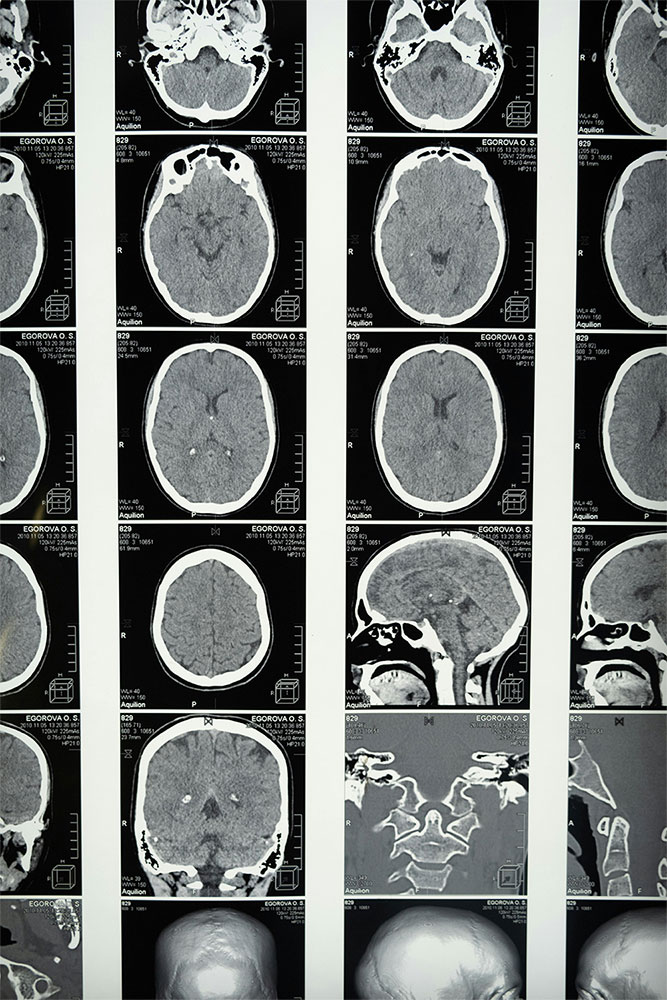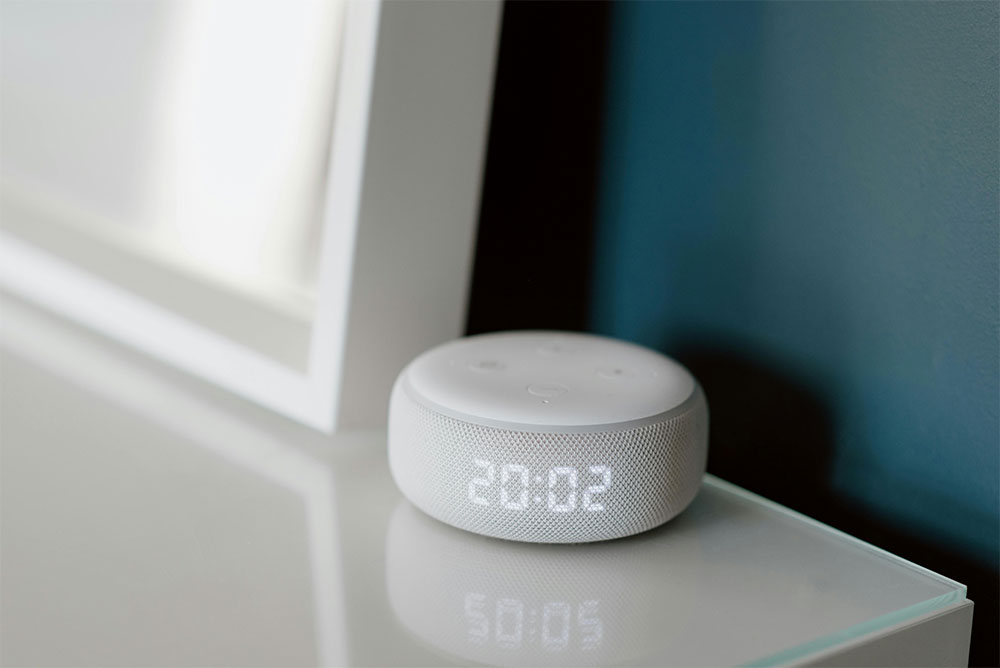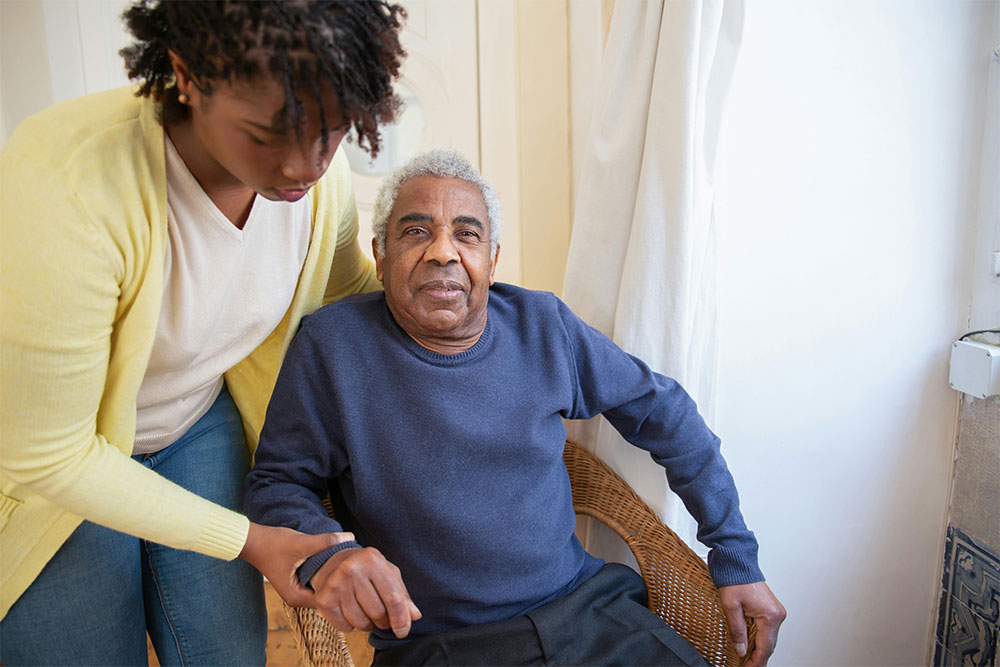
Christopher Ravn
Key Takeaways
1. Both Parkinson's and Alzheimer's have genetic and environmental risk factors, but their progression and specific symptoms differ significantly.
2. While there are distinct treatments for each, research is exploring shared mechanisms of neurodegeneration, potentially leading to universal therapies in the future.
Table of Contents
1. A Comprehensive Comparison Into Parkinson's Vs Alzheimer's
2. What Is The Main Difference Between Parkinson’s And Alzheimer’s?
3. The Neurological Pathways Between Alzheimer’s Vs. Parkinson’s
4. Which Is Worse Between Parkinson's And Alzheimer’s?
5. Misdiagnosis And Distinctive Disease Manifestations In Alzheimer’s Vs. Parkinson's
6. Can Alzheimer's Be Mistaken For Parkinson's?
7. What Diseases Are Often Misdiagnosed As Parkinson's?
8. Relationship Between Parkison’s Vs. Dementia Vs. Alzheimer’s
9. How Does Parkinson’s Dementia Differ From Alzheimer’s?
10. What Is The Difference Between Alzheimer’s Dementia And Parkinson’s?
11. Treatment And Neurodegenerative Links In Parkinson's Vs. Alzheimer's
12. Co-occurrence of Parkinson’s And Alzheimer’s Diseases
13. Can A Person With Parkinson’s Have Both Parkinson’s Disease Dementia And Alzheimer’s?
A Comprehensive Comparison Into Parkinson's Vs Alzheimer's
Parkinson’s Disease is a brain disorder that affects the motor system, leads to tremors, and causes problems with movement. It affects 1% of seniors over 60. To determine the key symptoms, patients experience tremors, slow movement, and postural instability. The other issues would be non-motor symptoms such as sleep issues, constipation, and anxiety.
Alzheimer’s Disease is a disorder linked to memory loss, language, and cognitive issues that affects 5–8% of the elderly over 65 years old. It affects a person’s motor issues, such as movement, balance, and coordination; behavioral issues, such as agitation and aggression; and cognitive issues, such as impaired judgment, speech issues, and memory loss.
The demographic most affected by Parkinson’s disease is men compared to women, with a ratio of 1.5:1 and Alzheimer’s is women, with a ratio of 2:1.
What Is The Main Difference Between Parkinson’s And Alzheimer’s?
Though Parkinson’s and Alzheimer’s may share similarities, the main difference is seen in their neurological impact, system onset, and progression.
Parkinson’s Disease affects the motor system and causes issues with the neurons that are located in the substantia nigra area. It reduces the amount of dopamine and causes tremors, slow movement, instability, and cognitive and emotional processing issues. As for Alzheimer’s Disease, it targets cognitive and memory issues, causing the neurons in the hippocampus area to degenerate. This results in a gradual cognitive decline such as memory loss, the ability to solve problems, and speech issues. It also affects mood, leading to depression and agitation.
The progression and onset of symptoms in both diseases are that Parkinson’s disease starts slowly with slight changes in one’s movement and balance, showing slight tremors, rigidity, and bradykinesia (slow muscle contraction). As it worsens, you will start to see issues such as depression, anxiety, and cognitive decline. As for Alzheimer’s, it starts with memory issues and difficulty remembering events or information. Thus, it is important to know how to help someone with dementia remember. Over time, symptoms worsen with mood changes and disorientation.
The symptoms of Parkinson’s are tremors, instability, anxiety, depression, sleep issues, and bradykinesia, while those of Alzheimer’s are memory loss, speech issues, judgment, feeling disoriented, mood and personality changes, depression, and agitation.
The Neurological Pathways Between Alzheimer’s Vs. Parkinson’s
Brain changes associated with each disease involve brain structure and function. You’ll learn that the presence of proteins known as amyloid plaques and neurofibrillary tangles, which impair neurons and brain function, causes Alzheimer’s. The loss of connection between neurons causes disruption. On the other hand, Parkinson’s results from the loss of dopamine-producing neurons, which causes genetic deterioration, tremors, and other symptoms.
The genetic factors that are connected to both of these diseases are that there is a presence of the APOE4 allele, which causes a person to have a huge risk of having the diseases. Other widely associated genomes that cause Alzheimer’s are TREM2, ADAM10, and PLD3. The genetic predisposition that might influence the risk of Parkinson’s is that there is no “Parkinson’s gene,” though there is mitochondrial dysfunction.
Which Is Worse Between Parkinson's And Alzheimer’s?
It is difficult to compare which is worse between the diseases because Parkinson’s progresses gradually and the symptoms develop over several years compared to Alzheimer’s, where the rate of decline differs among individuals. Both Parkinson’s and Alzheimer’s disease impact our daily lives but their impact is more profound due to issues with memory and communication. Life expectancy after diagnosis for Parkinson’s disease is 10-15 years, whereas that of Alzheimer’s is 4-8 years.
Impact On Daily Life Of Parkinson’s Patients
- Unable to walk, balance, or coordinate.
- Physical activity and medication both make chronic fatigue worse.
- Issues with memory, attention, and processing speed.
- Emotional challenges like anxiety and social isolation.
To overcome these issues, patients use adaptive strategic tools such as training programs to help improve functional mobility, devices such as adaptive clothing, utensils, and other tools, and home safety assessments that can help locate potential threats and hazards in their environment.
Daily Challenges For Alzheimer’s Patients
- Forgetting conversations, names, appointments, faces, and places.
- They are unable to complete daily tasks like bathing, dressing, and eating.
- Struggle to find the right words or understand conversations.
- Mood swings can distress patients and caregivers.
- Loss of autonomy, leading to frustration.
To address these issues, it is important to provide a daily routine to provide security and control, use memory aids and sensory activities for dementia patients to help them remember tasks, simplify tasks into smaller steps, encourage communication, and provide emotional support to help them cope with their frustration and anxiety. It is also important to do brain exercises to prevent Alzheimer’s
Misdiagnosis And Distinctive Disease Manifestations In Alzheimer’s Vs. Parkinson's
Alzheimer’s and Parkinson’s share almost the same traits and characteristics and at times, diagnosing them can prove to be a challenge. This is because both of these diseases can show such similar cognitive decline, memory loss, and motor systems that it is difficult to tell them apart. Another issue is that healthcare providers are unaware of this distinct difference and do not have the proper tools to diagnose it well. It is believed that around 30% of Alzheimer’s disease is misdiagnosed and 10–20% of Parkinson’s disease is misdiagnosed.
It is important to have the right diagnosis because it affects both treatment and management outcomes, thus leading to wrongful treatment, delayed diagnosis, unnecessary healthcare costs, and unwanted distress.
Can Alzheimer's Be Mistaken For Parkinson's?
Yes, both can be easily mistaken for each other, which makes it a challenge to diagnose. This is because both diseases can affect neurological disorders and affect cognitive function, movement, and behavior.
Both have similarities in terms of memory issues, confusion, tremors or rigidity and signs of dementia, which are seen in both, as well as speech issues.
Therefore, it can be seen that these symptoms confuse diagnosis because they overlap, show cognitive decline, and can pose an issue for healthcare professionals to diagnose.
The tools used by healthcare professionals to differentiate between the two are neurological exams to assess motor and cognitive function, MRI, CT, and PET scans to rule out other conditions, laboratory tests to check for biomarkers of the skin, and cognitive and neuropsychological assessments to differentiate between the two diseases.
What Diseases Are Often Misdiagnosed As Parkinson's?
The conditions that are commonly mistaken for Parkinson’s disease are essential tremor (ET), which involves tremors in both hands and forearms; normal pressure hydrocephalus, which takes place when the cerebral spinal fluid is not drained properly and causes mobility issues, thinking, and loss of bladder control; dementia with Lewy bodies that affects memory and thinking; multiple system atrophy that can come across as PD; and corticobasal syndrome.
Relationship Between Parkison’s Vs. Dementia Vs. Alzheimer’s
Parkinson’s, dementia, and Alzheimer’s Diseases are clearly three separate conditions affecting the brain. Though they may share similarities, each of it differs in progression, cognitive symptoms, and treatment plans. Parkinson’s Disease-Dementia (PDD) occurs in people with Parkinson’s disease and appears later after many years of motor symptoms. Alzheimer’s Disease on the other hand, has a gradual decline where the early symptoms are
memory loss, problem-solving issues, and language difficulties.
Treatment approaches for PDD would be medications such as dopamine agonists and levodopa. As for the cognitive symptoms, they are treated with cholinesterase inhibitors. As for Alzheimer’s Disease, it uses drugs like cholinesterase inhibitors and memantine.
Non-pharmacological treatments such as behavioral therapy and cognitive training are crucial to providing the best possible outcome.
We Believe Prioritizing Brain Health Enhances Your Quality Of Life
Get to know our team, our mission and how our EVY LIGHT® can provide you and your loved ones with a fuller life, letting you breathe a little easier.
How Does Parkinson’s Dementia Differ From Alzheimer’s?
Parkinson’s Dementia differs from Alzheimer’s in its rate of decline, as Parkinson’s dementia progresses more rapidly compared to Alzheimer’s. The nature of the decline for Parkinson’s dementia is unpredictable in its cognitive decline and Alzheimer’s Disease on the other hand has a more gradual and steady decline.
Management strategies for managing dementia in both of these diseases are to implement lifestyle changes such as exercise, social engagement, and stimulating cognition. To add on, medications such as cholinesterase inhibitors are administered where Parkinsons may require dopamine agonists and other motor medications. Behavioral therapy, caregiver support, and cognitive training will need additional prompts to address motor symptoms.
What Is The Difference Between Alzheimer’s Dementia And Parkinson’s?
- Alzheimer’s and Parkinson’s affect cognitive symptoms, age of onset is over 65 years old for Alzheimer’s and over 60 for Parkinson’s.
- Parkinson’s disease disrupts motor symptoms, whereas this is not explicitly evident in Alzheimer’s Disease.
- Alzheimer’s Disease is the most common cause of dementia, while Parkinson’s is not.
- Alzheimer’s affects the cortex, and Parkinson’s affects the subcortical regions of the brain.
Treatment And Neurodegenerative Links In Parkinson's Vs. Alzheimer's
Current treatments for Parkinson’s disease are dopamine replacement, monoamine oxidase B inhibitors, anticholinergic medication, amantadine, deep brain stimulation, and stem cell therapy. As for Alzheimer’s Disease, current treatments are cholinesterase inhibitors, memantine, anti-amyloid beta therapies, and tau-targeting therapies.
The current research trends include therapies and approaches such as AAV-mediated gene delivery, stem cell therapy, immunotherapy, and neuroprotective compounds to slow the progression of both Parkinson’s disease and Alzheimer’s Disease.
Shared Mechanisms Of Neurodegeneration In Alzheimer's Disease And Parkinson's Disease
- Abnormal protein invasion and disease degradation.
- Alternative splicing of exons leads to the production of toxic proteins.
- Issues with mitochondrial dysfunction that damages cellular components.

Enhance your brain performance through the power of light.
Comfortable and easy to use 40Hz light therapy to support and improve your brain function.
View Our LightCo-occurrence of Parkinson’s And Alzheimer’s Diseases
It is stated that almost 1 million people in the US have Parkinson’s Disease and the number is believed to increase to 1.2 million by 2030. As for Alzheimer’s, it is believed that at least 90,000 people are diagnosed with this disease each year.
It is known that the prevalence of dual diagnosis impacts patients and caregivers as the symptom overlays such as tremors and rigidity, cognitive issues that worsen PArkinson’s motor system symptoms, and caregivers having to manage the complex needs that have co-occurring conditions will feel emotionally and physically drained.
Can A Person With Parkinson’s Have Both Parkinson’s Disease Dementia And Alzheimer’s?
It is possible for a person to have both Parkinson’s Disease Dementia and Alzheimers. There have been studies that state that up to 70% of PArkinson’s disease develops into dementia as the disease progresses. Some studies have indicated that the presence of PDD may increase the risk of developing Alzheimer’s Disease. A study in the Journal of Neural Transmission has shown that 12% of people with Parkinson’s disease also developed dementia and Alzheimer’s disease pathology.

What Is The Difference Between Alzheimer's Disease And Parkinson's Disease?
Parkinson’s Disease is a brain disorder that affects the motor system, leads to tremors, and causes problems with movement. It affects 1% of seniors over 60. To determine the key symptoms, patients experience tremors, slow movement, and postural instability. The other issues would be non-motor symptoms such as sleep issues, constipation, and anxiety.
Alzheimer’s Disease is a disorder linked to memory loss, language, and cognitive issues that affects 5–8% of the elderly over 65 years old. It affects a person’s motor issues, such as movement, balance, and coordination; behavioral issues, such as agitation and aggression; and cognitive issues, such as impaired judgment, speech issues, and memory loss.
How Are Alzheimer’s Disease And Parkinson’s Disease Treated?
Current treatments for Parkinson’s disease are dopamine replacement, monoamine oxidase B inhibitors, anticholinergic medication, amantadine, deep brain stimulation, light therapy for dementia, and stem cell therapy. As for Alzheimer’s Disease, current treatments are cholinesterase inhibitors, memantine, anti-amyloid beta therapies, and tau-targeting therapies. The current research trends include therapies and approaches such as AAV-mediated gene delivery, stem cell therapy, immunotherapy, and neuroprotective compounds to slow the progression of both Parkinson’s disease and Alzheimer’s Disease.
Learn What Others Have Experienced with EVY Light
See how others have achieved a sharper mind by activating their gamma brainwaves in combination with maintaining a healthy lifestyle.








































































